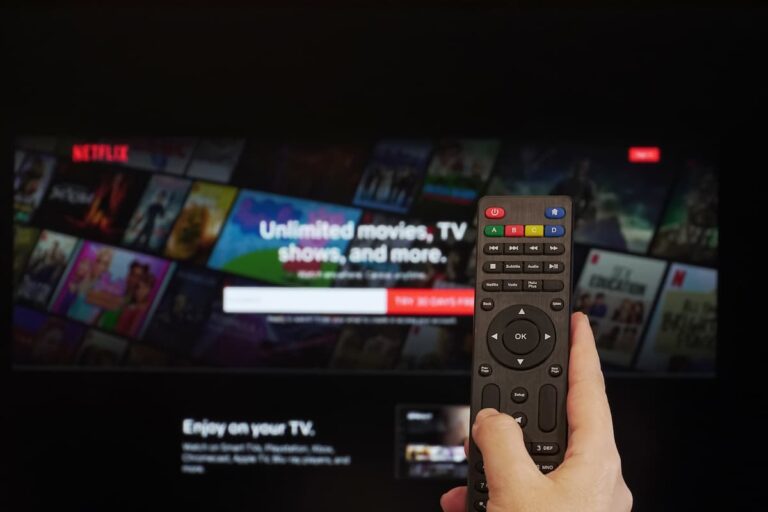Maybe you’ve just gotten a salary offer for $30k a year or perhaps you know you’re already paid that much but just want to confirm what you’re really getting here.
And asking questions is good! Whether it’s wanting to know that $30,000 a year is how much an hour, is $30,000 a year enough to live on or is $30,000 a year good, we’ve definitely got you covered with a full breakdown.
$30,000 a year is how much an hour?
$30,000 a year is $14.42 per hour. This is assuming that you work 40 hours every week of the year, meaning you would work 2,080 hours annually.
That’s all well and good if that’s how many working hours in a year you have. However, when you apply taxes, your actual take home pay will be less – although the exact amount this will be will depend on where you are.
You will take home about $21,060 if you earn $30,000 a year. This is based on the idea that the average single American contributes 29.8% of their earnings to income taxes, Medicare and Social Security.
With that in mind, $30,000 a year will be equivalent to about $10.13 an hour as take home pay, once you remove taxes.
And at that point (or any point, really!) managing your money properly is going to be key. I’d recommend automating this as much as possible to save you time by using a free app like Personal Capital.
You may also be interested in: How Many Work Hours in a Year Are There? (2023 and 2024)
Personal Capital
Our pick: Best budgeting app
Easily our choice for the best app to help you manage your money better.
Create a budget, track your spending automatically, receive personalized advice, get alerts about hidden fees and a ton more – and it’s all free.
How much is $30,000 a year monthly?
$30,000 a year is equal to $2,500 monthly, on the basis that you will work 40 hours every week throughout the year.
Of course, as above, this won’t be the amount that ultimately ends up in your bank account. The IRS needs their cut too, after all.
Instead, once you remove all relevant taxes and assuming, as we mentioned, a tax rate of 29.8%, earning $30,000 a year will result in you having $1,755 per month to spend.
You may also be interested in:
- $40,000 a Year is How Much an Hour? And is $40,000 a Good Salary?
- $50,000 a Year is How Much an Hour? And Is It Enough to Live On?
- Is $60k a Year Good? Can You Even Live Off of $60k a Year?
- $15 an Hour is How Much a Year? And is $15 a Living Wage?
$30,000 a year is how much biweekly?
$30,000 a year is equivalent to earning $1,153.85 biweekly. This is on the understanding that in every two-week period, you will work 80 hours in full time employment.
In case you’re wondering why this isn’t simply half of the monthly amount, it’s because each month isn’t a neat four week period. Instead, it’s usually “four weeks and a bit”.
This means that working out how much is $30,000 a year monthly and then dividing it by two won’t give you the right amount here.
It’s also worth calculating your take home pay here, again assuming a tax rate of 29.8%
That is, your biweekly take home pay when you earn $30,000 a year will be $810.
Related: $42,000 a Year is How Much an Hour? (Can You Live Off It?)
Is $30,000 a year enough to live on?
$30,000 can be enough to live on depending on where you live and how well you budget. For instance, general advice is that housing costs should not be more than 30% of your take home pay, which will be around $527 per month in rent or mortgage payments. This will be feasible in some places more than others.
For example, in San Francisco, “low income” is defined as being anything under $82,200 for an individual and $117,400 for a family of four. This means that, in San Francisco, $30,000 a year probably won’t be enough to live on.
But in other cities with lower costs of living, earning $30,000 a year is going to be much more in line with average salaries in the area where you won’t have to earn six figures just to survive.

It’s also going to depend on how many people you support on that salary. If you’re single and thus only supporting yourself, then $30,000 a year could be considered a good salary for a single person if you make sure to stick to your budget.
But it’s going to be more difficult if you’re the sole income earner in a family with this salary. In that case, you’re going to have to diligently stick to a budget and focus primarily on needs over wants.
You also may want to consider starting a side hustle to earn some extra cash each month so as to attract money to lighten the load somewhat.
Is $30,000 a year good?
Earning $30,000 a year is good, assuming you are a household of one and live in a low cost of living area. It won’t be quite as good if you are supporting a family on $30,000 a year, nor will it be as good if you live somewhere with a high cost of living.
Noting that the real median personal income in the US was $35,977 in 2019, earning $30,000 a year isn’t far off that. This means that if your salary is $30,000 a year, you’re pretty on par with a lot of other people – which is perfectly fine.
However, whether it’s actually a good salary is going to depend on your personal circumstances – namely who you’re supporting on that salary and where you live.
In 2018, the median household income in the US was $63,179. So if your total household income is only $30,000, then you’re well below this point and things may become more difficult. This is particularly the case if you’re supporting dependents, like kids, on this salary although it may still be very doable as a single person household and/or in an area with a reasonable cost of living.

But it really may not be possible somewhere with a higher cost of living. We used the example of San Francisco before and it’s a good one here too: there, earning $30,000 a year as a full time income wouldn’t be considered good. In fact, it may be almost impossible to support a family there at this salary level.
As such, before deciding whether or not a salary is good, it’s important to look at the overall situation as well as your own personal circumstances.
You may also be interested in: Rich vs Wealthy: What’s the Difference and How You Can Get There
Is $30k a year middle class?
Based on one popular definition of what counts as being middle class, this category in the US consists of people making between $42,119 and $126,358 per year. This means that earning $30k a year is not middle class.
Specifically, this is based on Pew’s definition of what is middle class, namely those earning between two-thirds and double the median household income. With the median household income in the US being $63,179, this gives us the range mentioned above.
This means that while you may be able to live off earning $30k a year, you still wouldn’t quite be in the middle class bracket at that salary point.
How much house can I afford making $30k a year?
On the basis that your mortgage should not be more than three times your annual salary, this would give you up to $90,000 to spend on buying a house. At the same time, your housing costs should be no more than one-third of your take home pay, which on $30k a year would be around $527 per month.
This means that, assuming your mortgage makes up 80% of the cost of your house, with your savings forming the deposit of the remaining 20%, you could afford a house worth $112,500 making $30k a year.

Whether or not this is going to be enough to actually buy a house is going to largely depend on where you live. It’s also worth mentioning that this is only a very loose guideline, as interest rates, fees and other costs involved in buying (and owning) a house can vary, all of which should be incorporated into your personal financial plan.
As such, it’s worth speaking with a mortgage professional to see what’s feasible here – but also make sure you do the math to ensure you can actually afford what they offer you, including with a bit of wiggle room for good measure.
Related: Can I Buy My Parents’ House For What They Owe?
How to live off $30k a year
There are some things you can do to make it easier for you to live off $30k a year:
- Start a budget. It’s going to be very important here to start (and stick to!) a budget, so you know you’re only spending what you can. Grab a free budget template here.
- Track your spending. Alongside starting a budget, tracking every expense is going to be critical here to make sure you know exactly where every dollar is going. While you can do this manually, it does take time, so I’d recommend using a free app like Personal Capital to do this automatically for you.
- Consider cutting back your other bills. Recurring subscriptions can really add up over time so it’s important to to keep track of your bills and consider whether you really need all the services you’re paying for – or if you’re able to negotiate a better deal. If all that sounds too hard, Trim is a great tool that can automatically do all this for you.
- Plan your meals. Food costs are a major expense in any budget, so finding ways to limit these can help a lot. And meal planning is one of the best ways to do this, as it lets you base your meals around cheap, filling, healthy ingredients while ensuring you always have the ingredients on hand to make one of the planned meals – so no expensive take out.
- Reduce your cell phone plan. Most of us pay for more phone services than we actually use. So see if you can reduce your data limit or the number of calls included in your plan each month to only cover what you actually use. Republic Wireless has some really great, cheap options for this.
- Look into what financial assistance is available. You may be eligible for support at this salary level, so ask with your local authorities.
- Use public transport or other cheap options. Owning a car is expensive so, if possible where you are, get rid of it and use public transport. You could also get a bike or simply walk if that’s feasible too. Not only is this good for your wallet, but it’ll be good for your health too!
- Go thrift shopping. Whether it’s furniture, clothing or anything else, you can often find it secondhand at a fraction of the cost of buying new. You could either go in-person to thrift shops or take advantage of Facebook Marketplace and similar platforms.
- Join the library. You’ll be amazed at how much free stuff your local library has. Far from just books, they now have a huge range of things to keep you entertained or learning – and all for free.






